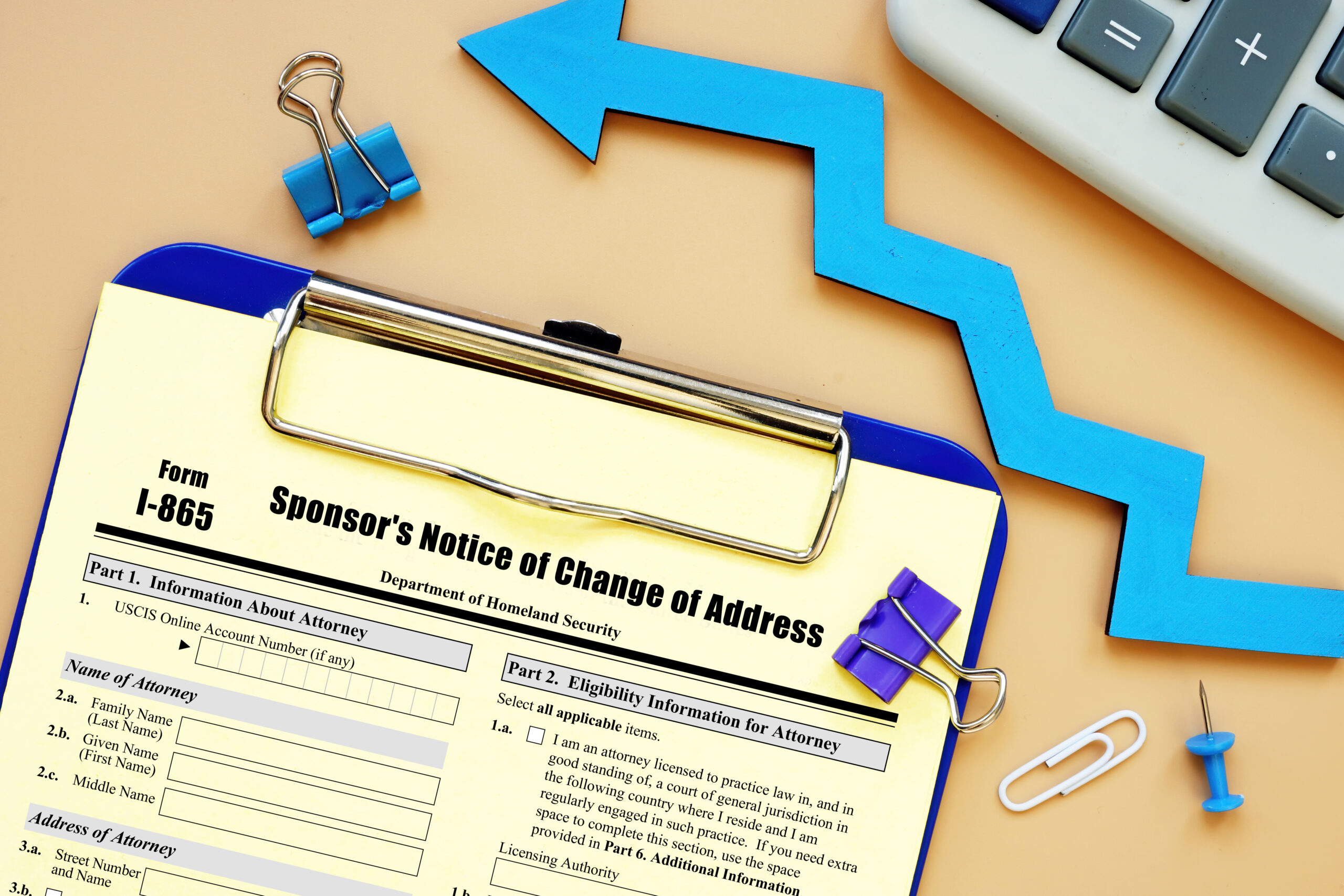If you are a conditional permanent resident who obtained your Green Card through marriage and are now facing divorce, you may feel uncertain about how this will affect your immigration status. Typically, both spouses are required to jointly file Form I-751, Petition to Remove Conditions on Residence, to remove the conditions on your Green Card. However, if your marriage is ending, or has already ended, you can still file for a *waiver of the joint filing requirement and retain your permanent resident status.
Our experienced immigration law firm specializes in guiding clients through the complexities of I-751 waivers, especially in cases where divorce is involved. We understand how stressful this situation can be and are here to help you navigate the process and ensure you have the best chance of success.
What Happens to My Green Card if I’m Getting Divorced?
When you receive a Green Card based on a marriage that has lasted less than two years, it is considered *conditional. To remove these conditions and become a permanent resident, you and your spouse must file Form I-751 together within the 90-day period before your Green Card expires. However, if your marriage ends in divorce or annulment before you can file, you can request a *waiver of the joint filing requirement.
In cases of divorce, you can still remove the conditions on your Green Card by filing the I-751 with a divorce waiver. This waiver allows you to file independently and prove that your marriage was entered into in good faith, even if it did not work out.
How We Can Help You File for an I-751 Divorce Waiver
Filing for an I-751 waiver after divorce requires more than just checking a box—it’s a complex process that involves proving the legitimacy of your marriage to U.S. Citizenship and Immigration Services (USCIS). Here’s how we can assist you through this challenging time:
1. Comprehensive Case Review and Strategy Development
First, we’ll conduct a thorough review of your case to assess the circumstances surrounding your marriage and divorce. USCIS carefully examines I-751 divorce waiver cases for any signs of fraud, so it’s essential to present a compelling case that proves your marriage was genuine. Based on the specifics of your situation, we will develop a strategy to demonstrate that your marriage was entered into in good faith, even though it ended in divorce.
2. Gathering Strong Evidence of a Good-Faith Marriage
To successfully obtain an I-751 waiver after a divorce, you need to provide evidence that supports the authenticity of your marriage. Our team will help you gather the necessary documentation, such as:
- Joint financial records (bank accounts, tax returns, insurance policies)
- Proof of shared residence (leases, mortgages, utility bills)
- Photographs, travel records, and correspondence
- Affidavits from family, friends, or colleagues who can attest to your relationship
- Documentation related to any children born during the marriage
We will guide you in organizing these documents in a way that strengthens your case and addresses any potential concerns USCIS may have.
3. Expert Preparation of Your I-751 Petition
The I-751 form and waiver request must be meticulously prepared to avoid delays or denials. We handle the entire application process, ensuring that your petition is completed accurately and that all supporting documents are properly submitted. Our attorneys will also prepare a detailed legal brief explaining your circumstances and demonstrating that your marriage was genuine, despite the divorce.
4. Legal Representation During USCIS Interviews and Requests for Evidence (RFEs)
In some cases, USCIS may request additional evidence or call you in for an interview to further evaluate your case. If you receive a Request for Evidence (RFE) or an interview notice, we will represent you, respond to USCIS’s inquiries, and help you prepare for any interviews. Our goal is to make sure you are fully prepared and confident throughout the process.
5. Ongoing Support and Communication
Divorce is a stressful experience, and dealing with immigration issues on top of that can feel overwhelming. We provide consistent communication and support throughout the entire I-751 process, answering your questions and providing updates as your case progresses. You can rely on us to be by your side every step of the way.
Why Choose Us?
Our immigration law firm has extensive experience handling I-751 waivers, particularly for clients facing divorce. We understand the importance of maintaining your permanent resident status and work diligently to present your case in the best possible light.
Choosing the right legal team can make all the difference in the success of your petition. Here’s why you should trust us with your I-751 divorce waiver case:
- Experience with Complex Waiver Cases
We have successfully represented many clients in obtaining I-751 waivers after divorce. Our expertise in this area ensures that your petition is handled with care, precision, and the strongest legal arguments. - Personalized Approach
Every case is unique, and we take the time to understand the details of your marriage, divorce, and current situation. We tailor our approach to fit your specific needs and circumstances. - Dedication to Client Success
We are committed to helping you achieve a positive outcome, and we will work tirelessly to ensure your I-751 waiver petition is as strong as possible. Our goal is to help you maintain your permanent resident status and secure your future in the U.S.
Schedule a Consultation Today
If you are facing divorce and need to file an I-751 waiver to remove the conditions on your Green Card, don’t go through this process alone. Our experienced immigration attorneys are here to guide you every step of the way and help you present a compelling case to USCIS.
Contact us today to schedule a consultation and learn how we can help you navigate the I-751 waiver process. Let us handle the complexities of your case while you focus on moving forward with your life.





